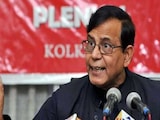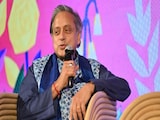Sandeep Ravindranath, an Indian filmmaker, posted his latest work to YouTube in May. The video, a nine-minute fictional drama with no dialogue titled 'Anthem for Kashmir', depicts a young political activist on the lam from authorities. Indian viewers likely picked up on its numerous references to alleged extrajudicial murders in the militarised state.
In late June, YouTube sent Mr Ravindranath a note saying a government entity had complained about the film. The details of the government notice were confidential, it said, but the company was taking 'Anthem for Kashmir' offline in the country. The filmmaker wasn't surprised. "People have been thrown into prison for just Facebook posts," he says.
Kashmir has long been a sensitive subject in India, but other issues have also become electrified recently. Prime Minister Narendra Modi's government has grown more aggressive about rooting out cybercrimes and what it calls "fake news" on social media. Under Indian law, including rules issued in 2021, executives at companies that don't comply with content removal requests could face jail time.
Twice this year, Indian journalists have been arrested for online activities in cases that attracted international attention. The government has also moved to make Meta Platforms Inc's WhatsApp hand over information about certain encrypted chats, citing public safety concerns.
India's large and growing internet base has magnified the government's concerns about disinformation, hate speech, and other dangers online. However, critics say the recent moves are simply cover for cracking down on free speech and dissent.
India's first rules governing the internet, passed more than a decade ago under a previous government after a major terrorist attack, were drafted in a "complicated, slapdash" process, says Raman Jit Singh Chima, Asia policy director for the civil rights group Access Now. Even so, they were roughly in line with those in other large democracies.
Mr Chima, like other internet watchdogs in India, says the official regulations are increasingly beside the point. "The government doesn't follow its own rules," he says. "The government doesn't follow due process. The system is rotten to the core."
This creates serious difficulties for US social media giants, for which India is a critical market, and they're putting up some resistance. WhatsApp sued in response to the requirements to turn over information. Twitter Inc. has yanked posts from PM Modi's Bharatiya Janata Party politicians and accounts over hate-speech violations. The government has flooded Twitter with requests to remove tweets and accounts, and has raided Twitter's office in New Delhi. In early July, Twitter filed a petition in an Indian court to challenge the removal orders.
Google's YouTube is huge in India, where the site has more monthly users than Twitter has worldwide. (The most recent figure YouTube shared for the country, in 2020, was 325 million monthly viewers.) The video service has struggled to overcome the specific content moderation challenges of India, with its multiple languages and complicated politics.
Last year the Indian government sent YouTube 1,670 takedown requests, more than eight times as many as the US did, according to company disclosures. Google doesn't report how often YouTube complies with such requests. "The anxiety the government has created is quite powerful," says Pamela Philipose, a veteran editor in New Delhi and the author of 'Media's Shifting Terrain', a book about Indian communications.
YouTube spokesperson Jack Malon declined to comment on 'Anthem for Kashmir'. "We have clear policies for removal requests from governments around the world," he said in a statement. "Where appropriate, we restrict or remove content in keeping with local laws and our Terms of Service after a thorough review."
India's technology ministry replied in a statement that it was following due procedure, adding that Mr Ravindranath didn't show up to a meeting on the matter. He says he didn't see how the meeting, which was scheduled after the video had been removed and would've required him to travel to Delhi, would be useful.
Critics say provocative content that reinforces the political priorities of PM Modi's government seem to be immune from scrutiny-for example, The Kashmir Files, a feature released this year that's been criticised as Hindu nationalist propaganda. A lawsuit attempting unsuccessfully to stall the film's release said it included "inflammatory scenes which are bound to cause communal violence." A trailer for The Kashmir Files has been viewed more than 50 million times on YouTube.
India is less of an outlier than an indication of the approach many governments are taking toward internet regulations, says Daphne Keller, director of the Program on Platform Regulation at Stanford's Cyber Policy Center. She says the Modi government's tactic of trying to stamp out encrypted messaging and social media posts under the guise of public safety and lawfulness could spread elsewhere. "We should consider it a canary in the coal mine for other faltering democracies," Keller says. "Including our own."















